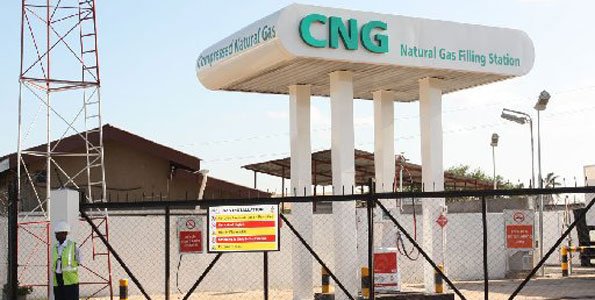DAR ES SALAAM, Tanzania – Tanzania on Friday inaugurated one of the largest Compressed Natural Gas (CNG) refueling stations on the continent, a move officials hailed as a landmark step toward reducing urban emissions and modernizing the country’s public transport infrastructure.
The state-of-the-art CNG “mother station,” constructed along the bustling Dar es Salaam Rapid Transit (UDART) corridor, boasts a daily production capacity of 4.2 million cubic meters of gas and can refuel up to 1,200 vehicles per day, according to the Ministry of Energy.
The launch also introduced Tanzania’s first-ever public bus powered by natural gas—a prototype expected to form part of a new fleet in coming years. The event was attended by senior government officials, international energy stakeholders, and environmental advocates.
“This facility marks a bold shift in our national energy agenda,” said Energy Minister January Makamba during the inauguration ceremony. “We are proving that Tanzania is not just talking about green growth—we are investing in it.”
The development is part of a broader government initiative to capitalize on the country’s vast natural gas reserves, reduce dependence on imported fuel, and meet its commitments under the Paris Climate Agreement.
Dar es Salaam, a fast-growing coastal city of over six million people, has long struggled with congestion and air pollution.
“This is a game changer,” said Amina Ngeleja, an urban transport expert at the University of Dar es Salaam. “Natural gas can serve as a transitional fuel while we build out the infrastructure for long-term clean energy alternatives.”
The CNG station was developed in partnership with TAQA Arabia, a regional energy infrastructure firm based in Egypt, and financed through a mix of public and private capital. Officials say the next phase will include satellite stations in other urban centers and subsidies for CNG vehicle conversion kits.
While the launch drew praise, some civil society groups urged the government to ensure that environmental sustainability is matched with social inclusion.
“The real test will be accessibility,” said Richard Temu, director of the Tanzania Urban Rights Network. “Will boda-boda drivers, daladala operators, and everyday citizens benefit—or will it serve only a narrow band of elite commuters?”
With fuel prices continuing to strain the country’s transport sector, the government is betting that cleaner, domestically sourced energy can offer a long-term solution. For now, at least, the sight of a quiet, gas-powered bus weaving through the dusty streets of Dar es Salaam stands as a potent symbol of ambition—and perhaps a glimpse into the future.





